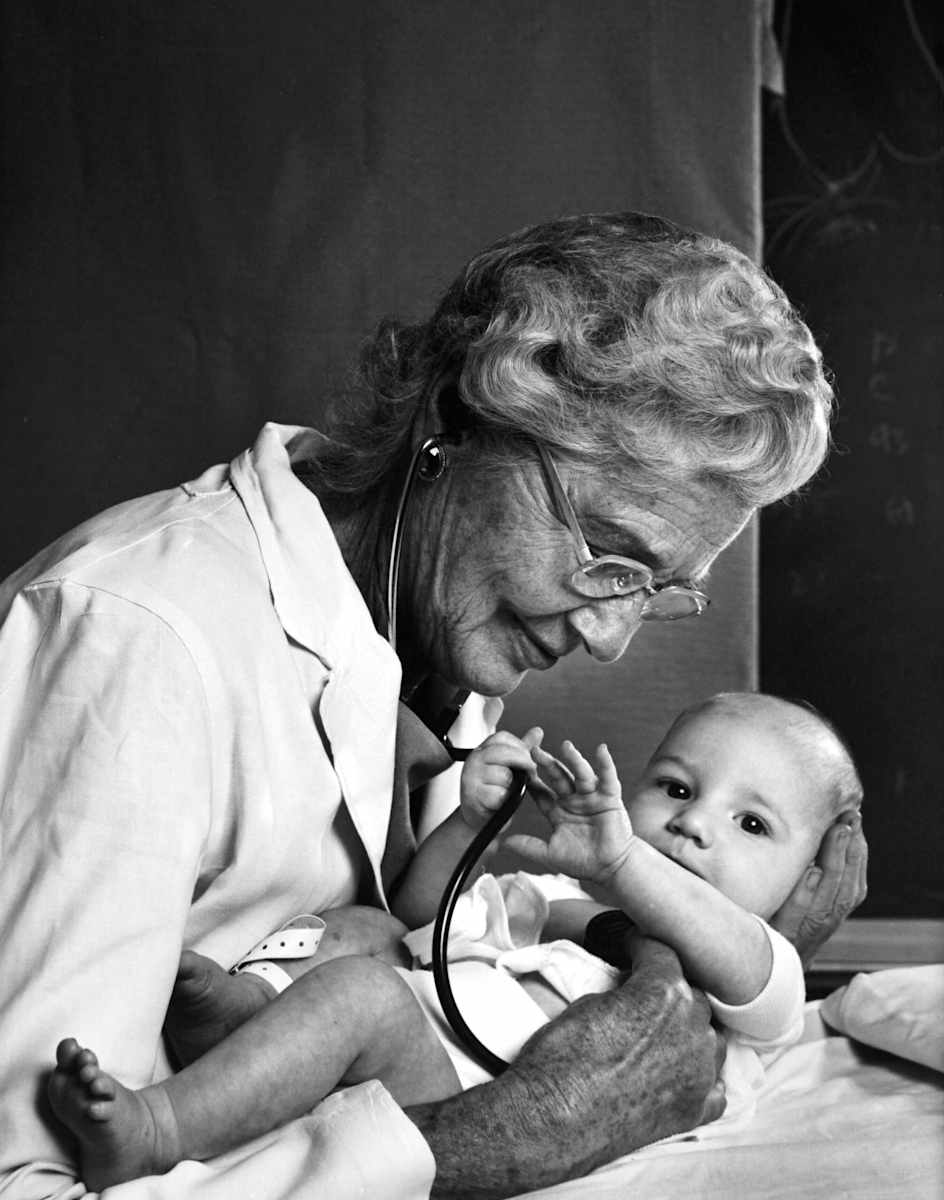Dr. Helen Taussig - The Woman Who Changed Heart Care
Born: May 24, 1898, Cambridge, Massachusetts, U.S.A.
Died: May 20, 1986, Pennsylvania, U.S.A.
Dr. Helen Brooke Taussig was the founder of pediatric cardiology.
All through her life, Helen Taussig was discouraged, and often prevented, from following her dreams simply because she was a woman. But she never gave in to low expectations. Instead, she pushed through with courage, determination, and brilliance. As the founder of pediatric cardiology, Taussig’s work continues to save the lives of babies around the world.
Helen Brooke Taussig was born in Cambridge, Massachusetts, on May 24, 1898. Her father was an economist at Harvard University, and her mother was one of the first students at Radcliffe College, a school for women. When Helen was only eleven, her mother died of tuberculosis. Around the same time, she caught whooping cough, which caused serious hearing loss. She also struggled with dyslexia, which made reading and writing very difficult. Even with these challenges, Taussig earned a bachelor’s degree from the University of California, Berkeley, in 1921.
She wanted to continue her studies in science and medicine, but opportunities for women were very limited. Taussig studied histology, bacteriology, and anatomy at Harvard Medical School and Boston University. However, neither school allowed her to earn a degree because she was a woman. In one class, she was even banned from speaking to her male classmates for fear she might “distract” them. Despite this discrimination, she published a paper on ox heart muscles with Alexander Begg. This work helped her gain admission to Johns Hopkins Medical School, where she earned her medical degree in 1927.
After graduation, Johns Hopkins hired her in its pediatrics department, where she quickly rose to chief of the division, serving from 1930 to 1963. There, she began groundbreaking research on “blue baby syndrome,” a condition that caused babies’ skin to turn blue from lack of oxygen. At the time, 25% of babies with this condition died before their first birthday, and 70% died before the age of 10. Taussig discovered that the problem came from blockages in blood vessels to the lungs or leaks in the septum, the wall that divides the two sides of the heart.
Working with surgeons, Alfred Blalock and Vivien Thomas, she helped develop a new surgery to correct the defect. This operation, known as the Blalock-Taussig-Thomas shunt, was a turning point in medicine. It not only saved countless babies but also became one of the first steps toward modern open-heart surgery.
Taussig’s achievements continued throughout her career. She became one of the first women to serve as an associate professor at Johns Hopkins and was later promoted to full professor in 1959. In 1947, she published Congenital Malformations of the Heart, a book that helped establish pediatric cardiology as its own field of medicine. In 1965, the American Heart Association elected her as its first female president.
Even after retiring from Johns Hopkins in 1963, Taussig kept working as a teacher, researcher, and advocate. In the 1960s, she learned about a drug called thalidomide, which caused severe birth defects in newborns. She testified before Congress in 1967, helping lead to the drug’s ban in both the U.S. and Europe. She also pioneered new methods of studying children’s hearts, combining x-rays and fluoroscopy to examine the heart and lungs in a safer way.
Later in life, Taussig became completely deaf. Yet she continued to care for patients by lip reading and using her hands to feel the rhythm of their heartbeats instead of relying on a stethoscope. Her determination showed her patients and students that medicine could be practiced with creativity and resilience.
Tragically, Taussig died in a car accident in 1986, just four days before her 88th birthday. But her legacy is alive in every child saved by the surgeries and treatments she helped create. Helen Taussig’s life shows the power of perseverance, compassion, and scientific discovery.
References:
“Changing the Face of Medicine | Helen Brooke Taussig.” U.S. National Library of Medicine, National Institutes of Health, 3 June 2015, cfmedicine.nlm.nih.gov/physicians/biography_316.html.
“Helen Taussig.” National Women’s History Museum, www.womenshistory.org/education-resources/biographies/helen-taussig.
Key words:
Innovation, Science, Courage, Perseverance, Responsibility, Repair the World – Tikkun Olam, Face Prejudice, Make a Difference
Explore ARTEFFECT projects about this Unsung Hero:
Dr. Helen Brooke Taussig Artworks
- Collections: Healer: Perseverance, Medicine Unsung Heroes, STEAM Unsung Heroes, Unsung Heroes

